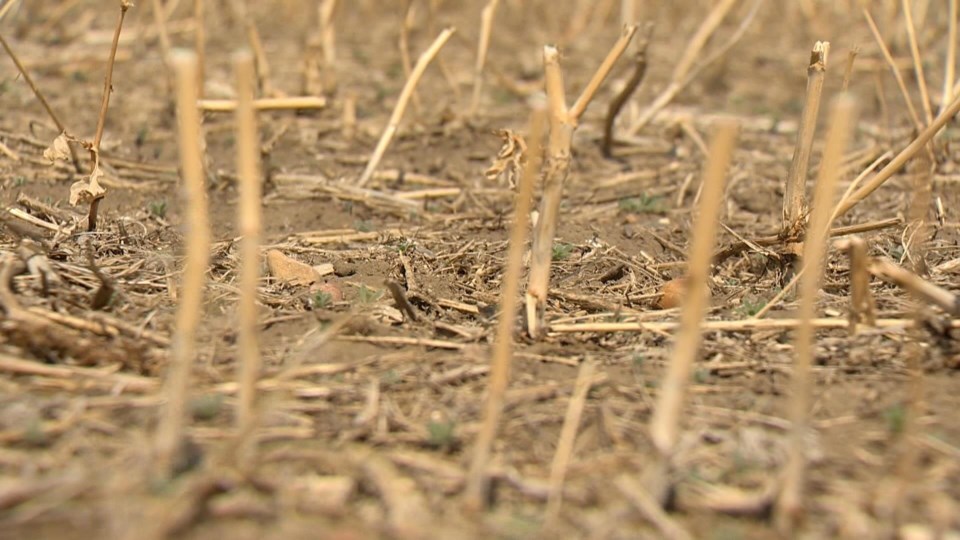ROCKY VIEW COUNTY— Facing an unprecedented summer of intense heat and little rain, Rocky View County declared a municipal agricultural disaster Tuesday (Aug. 3).
Reeve Dan Henn said the declaration highlights one of the worst growing seasons producers have faced in recent memory.
“It’s a little unnerving. I don’t think we’ve seen a summer like this,” Henn said. “This drought that we’ve had here in areas of the County— We haven’t been this dry for 50 years according to their records— It’s unprecedented.”
The low soil moisture in the spring combined with little seasonal rain and a prolonged heatwave in June and July increased the challenges farmers and ranchers face this year.
The conditions have reduced sources of feed and projected crop yields in Rocky View. More than 50 per cent of pastures and crops are currently rated as poor, and are tracking well below five- and 10-year averages.
Producers are expecting to see up to a 50 per cent reduction in yield for canola, wheat and barley.
The east side of Rocky View is seeing especially low soil moisture reserves— Some areas face 20 to 50-year lows.
The remainder of the County falls in a low "once in 12-25 years" to moderately low "once in three to six years" soil moisture reserves. A small portion of land on the western border of Rocky View has normal soil moisture levels.
Henn has been a farmer all his life and it has been concerning to see the drought wreaking havoc on the crops in the region.
“Rocky View County recognizes the importance of agricultural production to the economy and stands with local producers during this difficult time. We will continue to advocate for relief measures at the provincial level and will support producers in accessing any recovery and assistance programs that become available,” Henn said.
Declaring an agricultural disaster is designed to show the province that there is a problem in the region.
Henn said he hopes to see relief provided to farmers and producers affected by the drought— One of the bigger impacts would be in regards to crop insurance. Collecting crop insurance can be a drawn-out process, but if a provincial state of emergency is declared it can be expedited.
He added disaster relief would also be of aid.
Right now, even if the region was to receive rain it would do little to help farmers, Henn said, as the cereal crops are past the point of any water providing relief.
Henn said his crops are about half as tall as they should be this time of year and he expects to produce about half of what he would in a typical year.
Ranchers are also facing challenges as the dugouts providing cattle with water to drink are drying up as well.
“It’s dire,” Henn said. “There’s going to be some economic effects for everyone."
The Government of Alberta released a press release Tuesday calling on the federal government to undertake a formal assessment for an AgriRecovery response due to the dry conditions in the province affecting farmers and ranchers. AgriRecovery is designed to cover uninsurable costs, such as those incurred due to extreme drought conditions.
Provincial officials are working to identify extraordinary circumstances not covered by existing programs and advocate for producers in Alberta. This assessment has begun and includes collaboration with industry stakeholders.
The province is monitoring the situation and working with Alberta’s Agriculture Financial Services Corporation, other levels of government and commodity groups to ensure farmers, producers and ranchers have the supports they need.
“We’re working with industry to identify their most pressing concerns and making sure they have the supports they need to make it through this difficult time," said Minister of Agriculture and Forestry Devin Dreeshen. "We will continue to support the agriculture industry in whatever way we can.”




